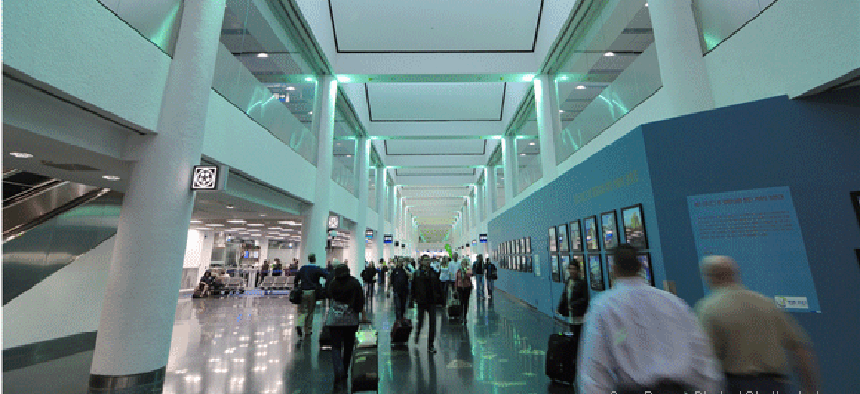TSA looking to expand analytics war chest


Connecting state and local government leaders
The Transportation Security Agency awards a contract for big data analysis as it pursues other screening technologies.
The Transportation Security Agency is looking to search and analyze large streams of data from multiple sources as part of its investigations. TSA has awarded a contract to Nuix Inc., a company with a data processing engine it claims is capable of sifting through “a virtually unlimited quantity of unstructured data” at speeds comparable to common Internet search.
The big data company said its “server-based and mobile investigations software” was chosen by a branch of TSA’s Information Assurance & Cyber Security Division, which crunches “digital evidence” for the agency’s Inspections, Federal Air Marshals and Chief Counsel’s offices, among others.
The system would be used for rapid analysis of large amounts of data during investigations and electronic discovery operations. TSA wanted a system that could process more than 1.5T per day on a single server and 500G per day on a mobile workstation.
It also needed to search and analyze Microsoft SharePoint data, network file shares and all common forensic image formats.
“Federal, state and local agencies are clearly facing big data challenges — they have a huge backlog of time-sensitive cases and need a scalable technology that works fast enough to help them catch up,” Peter Morse, who heads Nuix’s public sector division, said in a release.
The Nuix contract was awarded as TSA is pursuing other technologies to beef up its analytics war chest. In January, it posted a call for market research for the “possible expansion of expedited aviation physical screening initiatives.”
In the research solicitation, TSA said it was “particularly interested in techniques … to use non-governmental data elements to generate an assessment of the risk to the aviation transportation system that may be posed by a specific individual, and to communicate the identity of persons who have successfully passed this risk based assessment" to TSA.
Requirements of the system include gathering the information necessary to prescreen “potentially large numbers of potential enrollees and safeguarding the personal information from loss or disclosure,” according to the research request.




